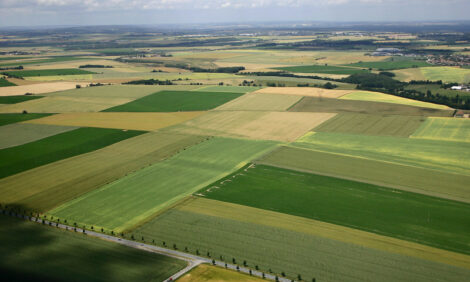



NFU Endorses All-Out Attack on TB
UK - The NFU has called on Defra Secretary of State, Hilary Benn, to grasp the nettle, and adopt the unanimous recommendations of a House of Commons committee for an all-out attack on bovine tuberculosis, including action aimed at targeting the disease in badgers.The Efra Select Committee, chaired by Michael Jack MP, has spent the last eight months assessing the recommendations of the Independent Scientific Group (ISG) to the Government on how best to tackle the serious and worsening problem of bovine TB. In 2007, new outbreaks of the disease exceeded 4,000 for the first time in the modern era, resulting in the slaughter of over 28,000 cattle.
The ISG concluded that badger culling could make a contribution but questioned whether it could be practically achieved. However, the Government's former Chief Scientific Adviser, Professor Sir David King, concluded, on the basis of the same evidence, "that removal of badgers can have a beneficial effect on the incidence of TB in those parts of the country where there is a high incidence of TB in cattle".
* "That removal of badgers can have a beneficial effect on the incidence of TB in those parts of the country where there is a high incidence of TB in cattle" |
|
Government's former Chief Scientific Adviser, Professor Sir David King
|
The Select Committee has weighed up those two scientific opinions, and come down in favour of a multi-faceted approach to bringing bovine TB under control, which would include licensed badger culling subject to strict conditions. Its overall assessment of the Government's TB policy is that it is "not working effectively", as evidenced by the fact that the number of cattle slaughtered because of TB is "doubling every four to five years".
It has also concluded that the present system for valuing TB reactors is unfair and called for a review.
NFU President Peter Kendall this week called on Defra Secretary of State, Hilary Benn, to implement the Committee's recommendations in full, without delay.
"It is time to act", said Mr Kendall. "We must attack this disease on every front before it destroys more cattle, damages more businesses, infects more wildlife, ruins more lives, and costs government and farmers even more money.
"The Select Committee's report is comprehensive, it has drawn on informed opinion from every side of the debate and it is unanimous. But at its heart is the principle that we must tackle every facet of this disease if we are to make progress. We know from the bitter experience of the last 25 years that partial controls don't work. Partial implementation would be a disaster and be a denial of the whole thrust of the Committee's recommendations.
"Our belief, based on Defra's research and our own, is that if the issues at stake are properly explained to them, the public will accept the over-riding need for this disease to be brought under control, for the sake of wildlife as well as for cattle.
"Not everything in the Select Committee's report will be welcomed by farmers in the TB hotspot areas by any means. The recommendations on additional testing and increased use of the gamma interferon test will be a particularly bitter pill to swallow.
"However, in principle we agree that a comprehensive strategy that deals with every aspect of the disease including some difficult issues for farmers is right.
"What we most certainly will not accept is a continuation of the present one-sided approach, where all of the concentration is on cattle to cattle spread, and nothing at all is being done about the infection that is constantly being recycled from the badger population.
"Thanks to a report published recently by the Royal Society, we now know that 75 per cent of TB outbreaks in cattle are caused by disease spreading from the badger population. So it is clear we will never get on top of this disease unless we face up to that and deal with it."
Mr Kendall said that farmers would want to work closely with Defra vets in devising culling strategies that would achieve the greatest impact on the disease, and emphasised that whatever was done would be legal, licensed and subject to veterinary advice.
He also welcomed the Committee's recommendations on disease compensation and vaccination.
"The Committee has passed the clearest possible verdict on the current compensation arrangements. They are manifestly unfair to owners of pedigree cattle and should be changed immediately.
"As for vaccination, there is obvious scope for using it both to reduce the risk of disease being spread by so-called perturbation, and to protect incoming healthy badgers to areas that have been cleared of disease. Ultimately, cattle vaccines could also have a valuable role to play. But sadly, vaccination is not an available tool for some years and in the meantime we must act.
"Ridding our countryside of bovine TB may be a long-term objective, but it is an objective to which anyone and everyone with the slightest concern for wildlife or livestock farming must be able to subscribe. As the Committee's report makes clear, the enemy is the disease. If we work together, we can defeat it, and the farming community is determined to play its full part. There is nothing we want more than a population of healthy badgers and cattle."
Further Reading
|
|
- Go to our previous news item on this story by clicking here. |
|
|
- Find out more information on Bovine Tuberculosis by clicking here. |
TheCattleSite News Desk


